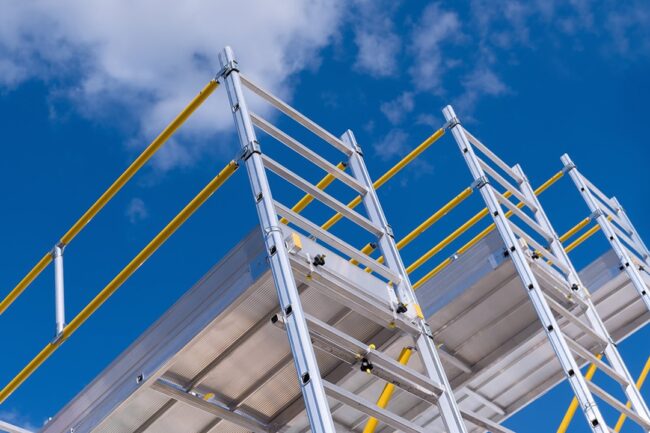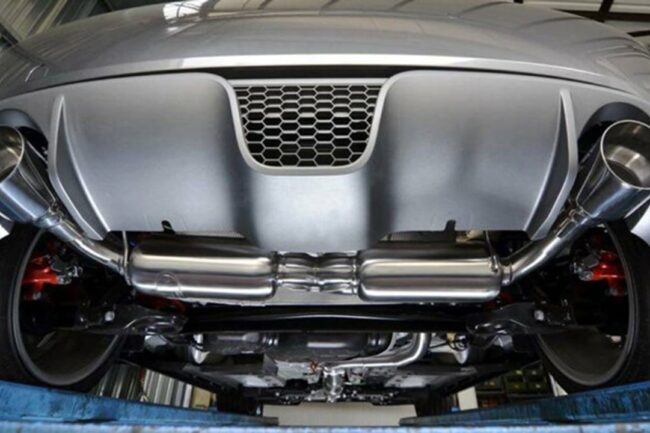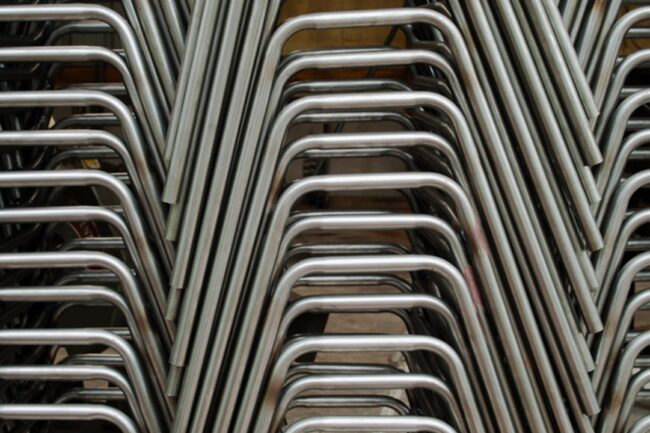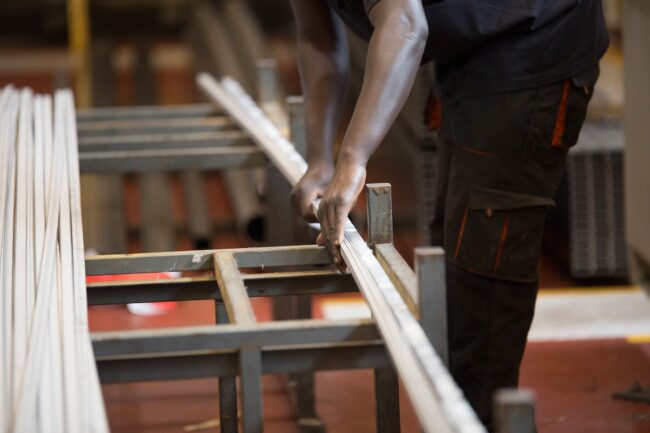Stainless steel tubes are used in a wide range of industrial and domestic environments. They can be of any diameter, length or thickness and range from simple and strictly functional to attractive and decorative, and can also be used in art.
In industrial use, they are valued for their strength and ability to withstand extreme temperatures and pressures as well as destructive elements. In addition, this type of material is relatively inexpensive to produce (more than plastic, but with more advantages). In the domestic environment, steel pipes can be found in domestic appliances and gas pipes. If you look behind your fridge, you are likely to see a steel pipe.
Steel tubes can be round, square or rectangular and are often alloyed with different metals such as aluminium, titanium, manganese or tungsten. They are so versatile that they appear in many types of industry and are produced in millions of tonnes each year.
Steel tubes account for 8% of world pipe production.
Advantages of steel pipes
The main advantages of this type of pipe, some of which have been listed at the outset, are.
Low levels of corrosion: this metal will retain a rust-free appearance for many years, even if it constantly has water inside. The particles of this metal are unlikely to penetrate into the water, so the rate of water contamination of this metal is almost non-existent.
Attractive appearance: unlike other metals such as iron or plastic, stainless steel tubes are attractive, look modern and can form part of the visible structure of a building, or even be a decorative element.
They are efficient due to their small size: steel tubes are very efficient and can therefore be used in smaller diameters than other materials to achieve the same purpose. Stainless steel has a much higher mass flow rate per unit diameter than other materials. This can save on the cost of the pipe without sacrificing flow.
They are strong. Steel pipes are strong and can withstand risk factors that can damage other types of pipes, such as tree roots, human error or bad weather.
Recyclable: Unlike plastic pipes, steel pipes are fully recyclable. When the tubes are no longer needed, they can be melted down and reused for other metal components in other industries.
Durable: steel pipes do not deteriorate over time. pipes from 20 years ago look the same as they do today. They do not sag and do not require as many fastening points as plastic tubes.
Applications for steel tubes
Construction and engineering
There are countless applications for steel tubes in construction, architecture and engineering, from the most practical to the most aesthetically pleasing.
The construction and engineering industry uses hollow structural steel sections (HSS, although in the UK the abbreviation varies depending on the shape of the tube – CHS for round, SHS for square and RHS for rectangular), usually round, square or rectangular, for reinforced structures that are subjected to high loads from different directions. Square and round sections are often used as columns.
Their high strength and durability make them suitable for both small buildings and huge skyscrapers in large cities. They are used, for example, in the foundations of large buildings, as well as in other structures.
Tubes of this type can often be found in balconies, staircases and balustrades as well as in decorative ceilings and other aesthetic elements. Many designers use steel tubes in visible parts of buildings to make them more attractive.
In addition, metal scaffolding made from steel is the industry standard in the construction sector as it does not require nuts and bolts, making assembly and disassembly quick and easy. Steel scaffolding can easily support workers and heavy machinery.
Steel tubes are very common in all kinds of construction applications, from high-rise structures to decorative structural elements to scaffolding and machinery.
Industrial and mechanical
It is highly resistant to corrosion and other surface damage as well as high temperatures, making it ideal for transporting water, gas and liquid waste through any type of industrial complex.
Steel pipes are also common in industrial machine components such as conveyor belts, hydraulic lifts, mills, production lines, etc. If you look around, you will see steel tubes in most appliances in your home.
Automotive industry
The use of steel tubes in the automotive industry has been increasing since the early 1990s. They are commonly found in the interior of vehicles, such as suspensions, fuel injection and vehicle control systems, for transporting liquids and gases such as oil, steam, gas and fumes.
The most common components in the automotive industry that use steel tubes are exhaust pipes and muffler components.
Household appliances
As mentioned above, there is virtually no everyday household appliance that does not have steel pipes. Refrigerators often use them for their water lines, sinks, toilets and other water dispensers use metal or plastic pipes, where steel is common.
In addition, water filtration, heating and other systems in the home may also require steel pipes for liquid and gas distribution.
If we look behind the refrigerator, we find steel pipes, as well as in most household appliances in a house.
Furniture
Steel tubing can also be found in furniture such as chairs, tables, shelving and other storage systems, especially in the higher quality ones that require sturdy and durable material.
Naval, aerospace and military industries
These industries require metals with alloys that are durable and can withstand extreme conditions. This is why steel tubes are widely used in satellites and space stations, mainly for fluid transport. In space, the components of these structures require greater strength and durability than on Earth.
Military aircraft and machinery also require robust tubes due to the high stress conditions they are subjected to. For example, steel tubes are required for landing gear, engine shafts, exhaust ducts and other essential components of aircraft, and are often used for weapons components of military machinery (e.g. assault rifles) and military vehicles.
Medical instruments
The medical industry uses steel tubing in patient care equipment and applications because of its high quality and durability.
Some surgical tools require stainless steel tubing, while many orthopaedic implants must be tubular in shape to match the shape of the bone. Stethoscopes, for example, must be made from a specific type of steel tube to create the most effective balance between sound transmission and ease of use.
Hospital beds, wheelchairs or braces are just some of the uses of steel tubes in everyday hospital life.
Manufacture of steel tubes
This type of tube can be manufactured in two ways: by welding two sections together or by passing molten steel through a boring bar to create holes inside the tube. Welded tubes are made by bending two plates and welding their respective joints. Today, welded tubes are strong enough to compete with non-welded tubes, something that was not possible in the past.
They can be manufactured in many different ways, as they can come in very different lengths and thicknesses, depending on their use. Making a tube for construction is quite different from making a tube for fuel injection in a car or a tube for a chair leg, which is more likely to require two welded parts and huge machinery.
Steel tubes can be made as one piece or welded in two; both options are very competitive today.
Steel Pipe Cutting
The intended use of the steel pipe will also determine what type of cutting it needs, since pipe mills manufacture large pieces that will then be machined depending on what they are intended for. A steel pipe intended for scaffolding will probably require disc tube cutting, as it will not require as high a quality finish as steel pipe intended for shelving, which will most likely be laser cut for a better, burr-free finish. Steel tube is compatible with any type of cutting today: laser, disc, saw, etc.



